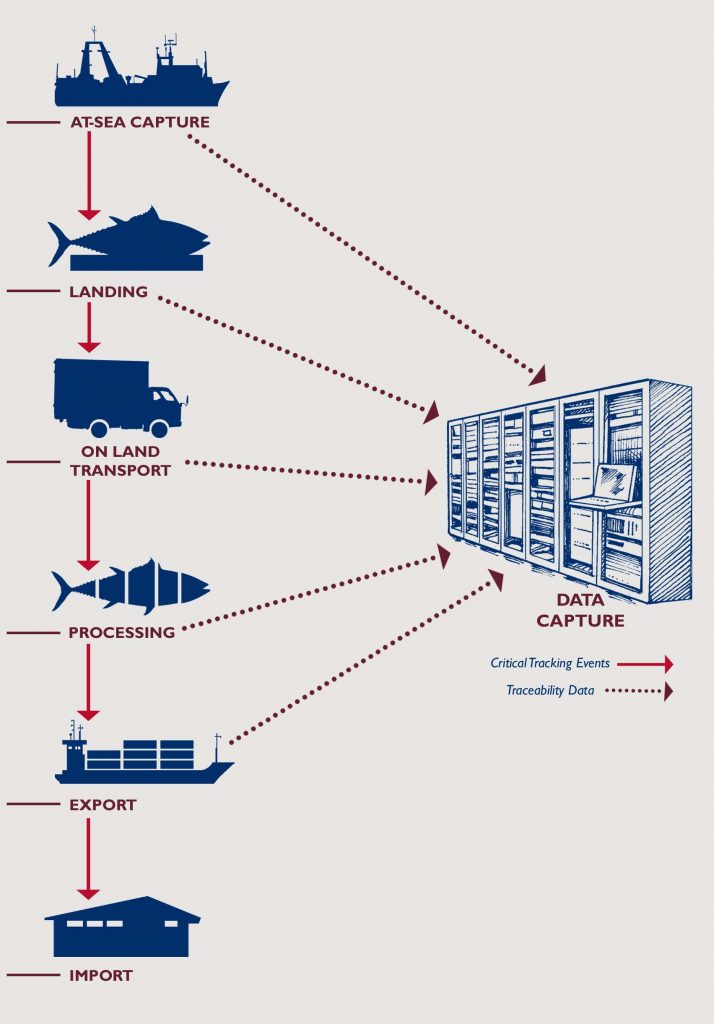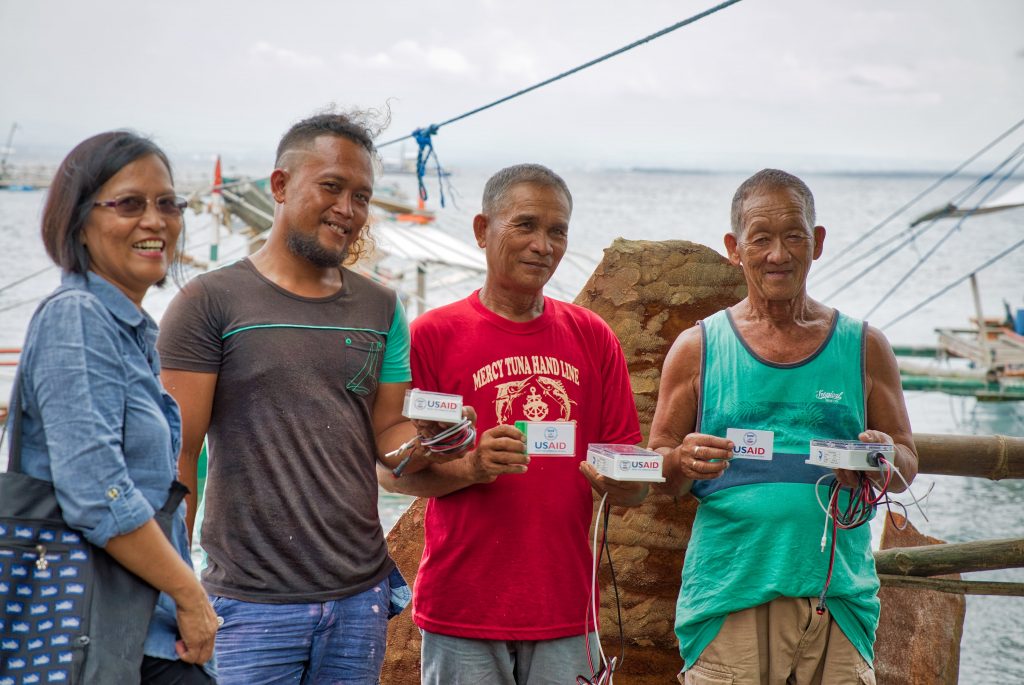CONNECTING THE SUPPLY CHAIN: USAID OCEANS-SUPPORTED TECHNOLOGY FOR TRACEABILITY
Southeast Asia’s seafood supply chains are complex and are currently challenged by limited connectivity, a lack of coordinated efforts, and an unavailability of technology that can support these conditions. As such, USAID Oceans and its partners have worked together to identify eCDT tools and solutions that establish connectivity in remote and at-sea areas, provide a mechanism for data collection, and enable data transmission through the entire supply chain and across a range of actors.

USAID Oceans-developed and supported traceability tools are being piloted in two learning sites of General Santos City, Philippines and Bitung, Indonesia, to provide best practices, lessons learned, and de-risked, tested technology to its regional partners across Southeast Asia. Learn more about USAID Oceans-developed and supported technologies.
Visit the following pages to learn more about each technology’s uses, capabilities, and benefits.
At Sea Capture (Point of Catch):
FAME: A low-cost traceability tool for small-scale fishers and their vessels with additional safety and communication benefits
Pointrek: Two-Way communication and vessel monitoring system for medium- and large-scale vessels
Landing:
Trafiz: A mobile application empowering small-scale buyers, brokers, and middlemen to record seafood traceability data at the point of landing
Processing:
TraceTales: Fully integrated production, inventory system for seafood processors
USAID Oceans extends its gratitude to its technical and grantee partners who have supported technology design, implementation, and testing, as well as its learning site First Movers who have become early-adopters of the technology to test each in the program’s learning sites.

USAID Oceans’ Small-Scale Fisher First Movers in General Santos City, Philippines. Photo: USAID Oceans/Farid Maruf
SUPPORT FOR INTEGRATED ELECTRONIC CATCH DOCUMENTATION AND TRACEABILITY SYSTEMS
USAID Oceans provides support to regional and national eCDT initiatives, including the SEAFDEC-developed Electronic ASEAN Catch Documentation Scheme (eACDS) and national eCDT initiatives by the governments of Indonesia, the Philippines, and those of other ASEAN member countries. USAID Oceans provides support to its partners for ongoing system design, development, and expansion.
- SEAFDEC e-ACDS: USAID Oceans supports its partner, SEAFDEC, in the ongoing development, enhancement, and expansion of the e-ACDS to be used by ASEAN member countries. The e-ACDS provides a ready-made solution to ASEAN member countries working to implement electronic Catch Documentation and Traceability , allowing seafood products to be traced through the complete supply chain.
- Philippines Bureau of Fisheries and Aquatic Resources (BFAR): BFAR has developed an internal traceability system, the eCDTS, to bridge small,medium, and large-scale eCDT data capture tools and to integrate existing national databases. The BFAR eCDTS also enables supply chain actors to enter data through web and mobile-based database modules in port, supporting the generation of nationally mandated certificates and documentation.
- Indonesia Ministry of Marine Affairs and Fisheries: MMAF has developed an internal downstream traceability system, STELINA, that not only serves to bridge eCDT data capture solutions, but also integrates more than twelve existing fisheries management databases that are currently used by MMAF. USAID Oceans is supporting MMAF in the development of STELINA through technical advice for system interoperability and use in sustainable fisheries management planning, recruitment of First Movers, and capacity building trainings.
USAID Oceans also provides technical support to regional partners to assess their eCDT readiness, opportunities for implementation, and challenges for consideration in their system development processes. Learn more.

